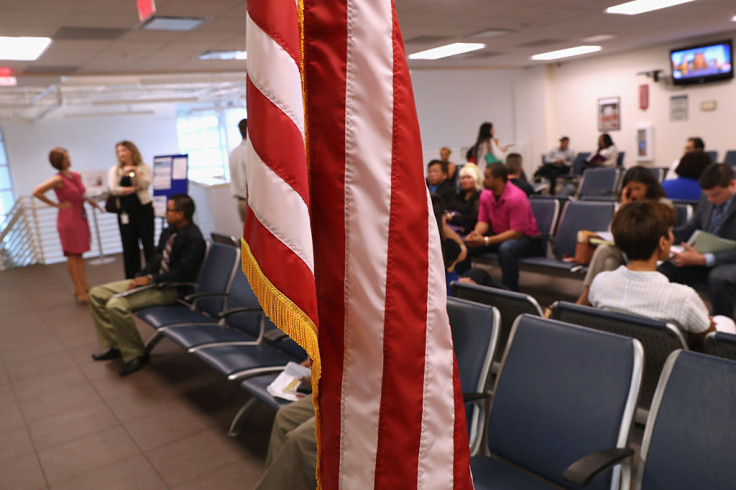
As part of its broader effort to crack down on illegal immigration, the Trump administration has made it more difficult for green card holders to meet the requirements for U.S. citizenship, including passing the naturalization civics test.
Starting Oct. 21, green card holders applying for naturalization will face a revised civics test that is longer, more complex and more subjective, while those who filed before Oct. 20 will take the 2008 test.
The new oral test draws 20 questions from a pool of 128. To pass, applicants must answer at least 12 correctly, while getting nine wrong results in failure.
The advocacy nonprofit National Partnership for New Americans (NPNA) says the updated test has shifted from simple, one-word answers to more detailed questions about American history, which could discourage people from seeking citizenship.
"This new citizenship test is the latest deliberate and systemic barrier designed to exclude, not educate," NPNA Executive Director Nicole Melaku said. "A person's ability to become a citizen should not depend on financial resources, literacy level, arbitrary historical opinions, or what they post on their social media accounts."
A joint report from NPNA and the U.S. Immigration Policy Center at UC San Diego shows the test changes have already led to a nearly 24 percent increase in citizenship application denials, comparing the first six months of the second Trump administration with the last six months of the Biden administration.
The nonprofit warns that making the process harder will worsen the backlog of applications and put more pressure on already strained agency resources. Median processing times for naturalization applications have jumped from 5.2 months to 7.9 months, with advocates expecting delays to continue growing.
"When we see a nearly 24 percent spike in denials, processing times ballooning, canceled citizenship ceremonies due to the government shutdown, and advocates across the country sounding the alarm, the message is clear: we are witnessing the dismantling of our legal immigration system that hurts families, weakens our communities, and undermines the very democracy this test claims to celebrate," Melaku said.
The second Trump administration has pursued a broad crackdown on illegal immigration while restricting legal pathways, including scrutinizing citizenship applications, challenging birthright citizenship, and imposing stricter requirements for visas and naturalization.
Changes to the oral civics test may be just the beginning.
Last month, USCIS Director Joseph Edlow told Axios that the previous test was "just too easy" to pass and said he is considering adding an essay section with questions meant to show a deeper connection to the Constitution, such as, "What does it mean to be an American?" or "Who was your favorite founding father?"
Another recent measure was announced last week by the Department of Homeland Security, which said migrants granted humanitarian parole in the United States will now be required to pay a $1,000 fee. DHS says the fee is intended to increase accountability and "deter misuse" of the system.
The fee will be adjusted annually for inflation and is mandatory before parole can be approved, with limited exceptions for individuals qualifying under ten statutory exemptions.
When announcing the fee, Assistant Secretary Tricia McLaughlin said the measure is part of a broader effort by President Trump and Secretary Kristi Noem to restore "law and order" to the immigration system.
"Through the implementation of this new fee, President Trump and Secretary Noem are guaranteeing that foreign nationals who wish to stay here have skin in the game and do not exploit the system," McLaughlin said. "This immigration parole fee notice is another tool to stop the degradation of our immigration system and restore law and order to our country."
© 2025 Latin Times. All rights reserved. Do not reproduce without permission.







